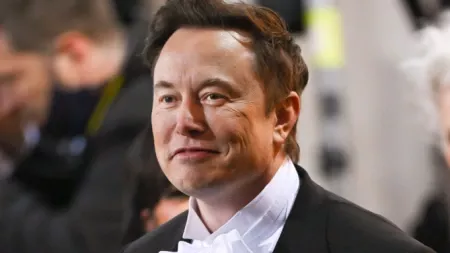A court in Delaware will decide whether Musk must purchase Twitter.
Twitter has sued Elon Musk over his decision to scrap a $44 billion takeover of the social media company, arguing he’s required to consummate the deal in accordance with the merger agreement.
“Having mounted a public spectacle to put Twitter in play, and having proposed and then signed a seller-friendly merger agreement, Musk apparently believes that he — unlike every other party subject to Delaware contract law — is free to change his mind, trash the company, disrupt its operations, destroy stockholder value, and walk away,” reads the complaint filed on Tuesday in the Delaware Court of Chancery.
Musk in April made a $44 billion cash offer to buy Twitter to “unlock” its potential to “be the platform for free speech around the globe.” He discreetly started purchasing shares in January, building his stake in the company until he owned five percent two months later.
But as his fortune plummeted in tumbling Tesla shares, Musk soured on the deal. He told Twitter on July 8 that he is terminating his proposed purchase of the company. He argued in a letter that Twitter was in breach of the merger agreement, pointing to “false and misleading representations” about its bot and spam accounts. He also took issue with its “declining business prospects and financial outlook” after the departure of key executives, layoffs and a hiring freeze.
Twitter responded that it would pursue legal action to ensure the deal goes through at the agreed upon price and terms.
According to the complaint, Twitter can force Musk to follow through on his takeover. It pointed to language in the merger agreement providing that the company “shall be entitled to specific performance or other equitable remedy to enforce” the deal. Specific performance is a remedy in contract law in which a court orders a party to comply as closely as possible with the terms of a contract.
“Twitter negotiated for itself a robust right to demand specific performance of the agreement’s terms that encompassed the right to compel defendants to close the deal, and ensured that Musk personally was bound by that provision,” the complaint reads.
The Delaware Chancery Court in 2021 refused to allow a private equity firm to back out of an agreement to purchase DecoPac, a cake decorating company, despite not having debt financing. In that case, the firm also took measures designed to build a foundation to renege on the deal as Musk is alleged to have done.
Twitter in June said it would comply with Musk’s demand for internal data on spam bots and fake accounts after threatening to walk away from the deal. The company said it would offer access to the so-called “firehouse” of data comprising a real-time record of more than 500 million tweets posted daily and information about the accounts and devices from which the posts are sent. It may be difficult for Musk to walk away from the deal by arguing that Twitter made a material misrepresentation that he relied on since the company has qualified in securities filings that its estimate of spam accounting for less than five percent of its monetizable daily active users may be too low.
“In making this determination, we applied significant judgment, so our estimation of false or spam accounts may not accurately represent the actual number of such accounts, and the actual number of false or spam accounts could be higher than we have estimated,” reads a filing to the Securities and Exchange Commission.
Twitter is represented by Peter Walsh of Potter Anderson & Corroon, Wilson Sonsini Goodrich & Rosati and merger law heavyweight Wachtell, Lipton, Rosen & Katz. Musk has hired Quinn Emanuel Urquhart & Sullivan, which successfully defended him in a defamation suit and is representing him in a shareholder case over his attempt to take Tesla private.
Both sides agreed in the merger agreement to litigate any dispute in the Court of Chancery, known for resolving conflicts much faster than other courts. Chancery judges specialize in business law and hear cases without juries. The case will likely be resolved within months through a settlement.
In a similar case that ended in a settlement, Tiffany sued French luxury goods giant LVMH in Delaware court. The company alleged that the Louis Vuitton owner had deliberately been trying to stall and renegotiate the $16 billion takeover. LVMH eventually consummated the agreement valuing Tiffany at $15.8 billion.
Twitter shares closed on Monday at $32.65, a far cry from the $54 a share that Musk agreed to pay at a valuation of $41.4 billion. Musk’s interference in the company is widely regarded to have contributed to its plunging value.
Twitter has been sued by investors seeking to block the deal in addition to shareholders seeking to force the company to share internal documents about its spam bots and fake accounts.




